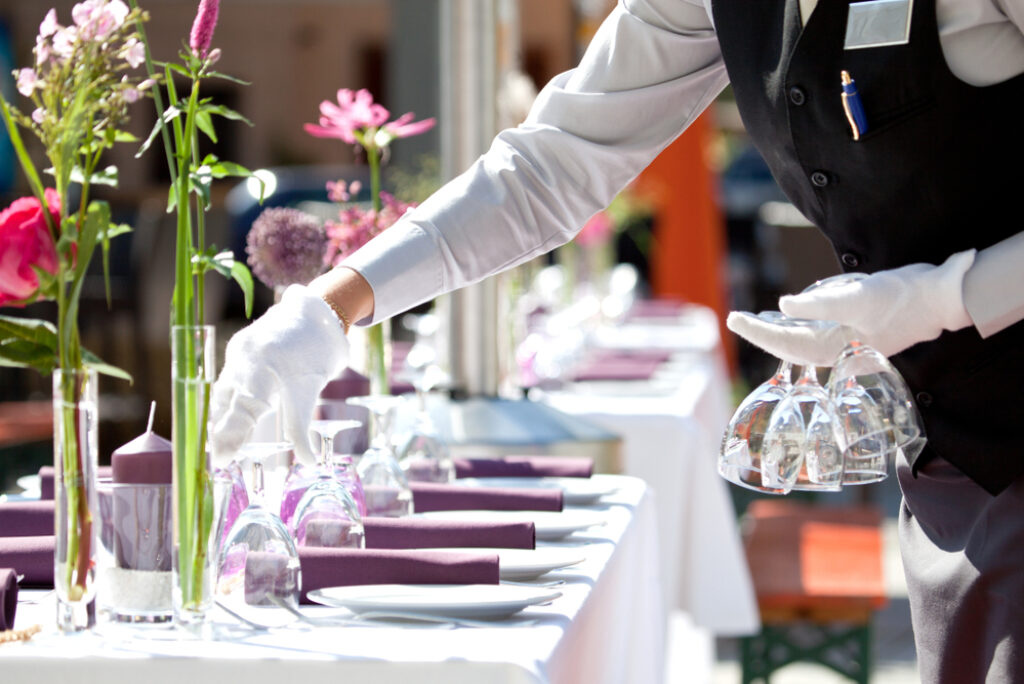Hospitality trends for 2021 you need to know
2021 has unprecedented opportunities for the hospitality industry. In this blog article we draw on our experience in the contract market to highlight innovative solutions that are rising into solid trends for the coming year.
First let’s look pre-COVID technology in the hospitality industry
It’s clear that hotels, bars, and restaurants are facing existential concerns: they need to figure out ways to stay open while also keeping guests safe and healthy.
We would argue that these concerns are a good thing. If anything, the global pandemic has accelerated technological advancement in the hospitality industry.
We’re seeing this ourselves with the wonderful success of TwinBru, our service that provides high quality renders of interior furnishings & scenes with 3D digital fabrics that match the actual fabrics.
MICE (meetings, incentives, conferences, and expos) is an essential part of the hospitality industry, one that is pivoting to different kinds of virtual events. It’s seen healthy growth even before the global pandemic. For example, before 2020:
- 52% of event professionals said that they are investing more in event tech than the previous year.
- 89% of businesses using event technology save roughly 200 hours per year.
- 83% of event creators use an event app.
Other parts of the hospitality industry would do well to study what the MICE industry has been doing for their own inventive solutions.
Bizzabo recently found:
- 85% of leaders and executives identify in-person events as critical to their company’s success.
- However, 93% of event marketers plan to invest in virtual events moving forward.
- 68% of event professionals are looking for hybrid event technology to support in-person and virtual events
FibreGuard fabrics reach hospitality standards without losing their easy-clean properties. Explore what our easy-clean fabrics are doing for the hospitality industry.
Guest experience is still a priority for a post-COVID world
There has been an understandable shift in attitudes for both hospitality management teams and consumers in the wake of COVID-19.
As we wrote in 2019, using technological advances to tailor interior space for its users, rather than the other way around, means that management can create a special environment in their premises.
The hospitality industry is leaning into the crunch
Janitorial rosters are fuller than before, with most hospitality environments needing to be cleaned far more than once a day.
In Fortune, Joe Allen, assistant professor at Harvard’s T.H. Chan School of Public Health and co-author of the recent book Healthy Buildings, highlighted electrostatic sprayers as instrumental to the imminent coronavirus ‘cleaning boom’.
One is prominently displayed here in a Delta Air Lines ad about their expanded cleaning efforts.
How they work: Sprayers give molecules of disinfectant a positive electrostatic charge before they’re sprayed onto surfaces. That both attracts the molecules to surfaces, and repels them from one another, creating an even coating and pushing disinfectant into recessed areas. – source
This is far from fantasy.
At the Hotel Ottilia in Copenhagen, guests can stay in a room that fully disinfects itself with a product called ACT CleanCoat each morning…no housekeeper required. It claims to break down harmful microbes such as bacteria, viruses, airborne fungal spores, and chemical compounds such as VOC and NOx.
Read about FibreGuard Pro: a soft-to-the-touch, antimicrobial fabrics range equipped with a breathable, flexible moisture barrier, making it ideal for very demanding environments. We are extending this level of antimicrobial protection to all of our FibreGuard fabric ranges going forward.
Sustainability is no longer a choice for the hospitality industry
A 2017 survey by Green Lodging News found 68% of hotels had green initiatives in place. Four years later, that percentage is much higher. In fact, a recent article on Boutique Hotelier News noted that: “…Sustainability is no longer a choice that can really be made by businesses. The future of hospitality will be inherently sustainable.”
The various parts of the hospitality industry will be studying their supplier relationships in 2021, removing miniature toiletries and plastics, and creating more sustainable food and beverage menus based on local, seasonal produce.
FibreGuard's green-conscious fabrics are certified under the STANDARD 100 by OEKO-TEX®. This is our promise to you that our drapery and upholstery fabrics won’t release any harmful finishes or chemicals into the world.
Recognised standards are important too. Marriott, for example, has over 1,800 hotels that have earned a TripAdvisor GreenLeaders badge.

Launched in 2013, this initiative was created in partnership with the U.S. Environmental Protection Agency’s Energy Star program, the United Nations Environment Program and the U.S. Green Building Council. 2021 will see further growth.
2021 trends takeaways
While this article mostly focuses on sanitisation innovations, it’s still up to hotels, bars and restaurants to strike the right balance between ‘hygienic’ and ‘inviting’.
Experience is everything, and consumers still expect to enjoy their time in hospitality environments, as well as being safe while they’re in them. As the world begins to open up again in 2021, these trends for the entire industry are key.
